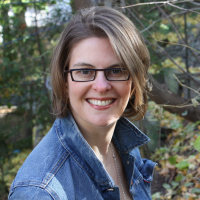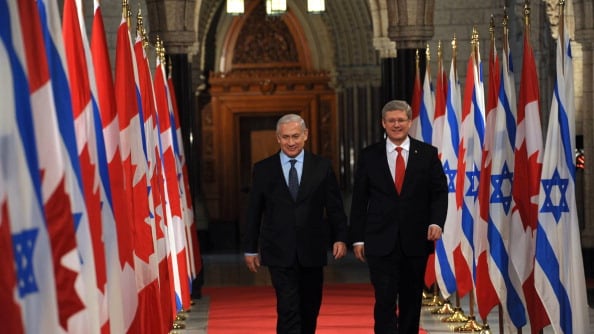Continuing its sharp turn toward unblinking backing of Israel—from what was its historic role as a more nuanced and seemingly honest broker—Canada is set to join forces with the U.S. to oppose the Palestinian bid seeking non-member state status at the U.N. today. And to make sure the world knows where Canada stands, Foreign Minister John Baird is traveling to New York to cast his country’s opposing vote personally. “While we believe the resolution will pass by a large margin, we are nonetheless going to vote against it and stand up for what we believe is right,” Baird told the House of Commons on Wednesday in Ottawa.

To understand Canada’s position on the Palestinian U.N. bid, one needs to understand something about the philosophical commitments of the current government. Baird (who is not Jewish) quips about having his "own rabbi” and even his very own “Jewish mother” (who, in the form of the Jewish National Fund’s Negev dinner event chair, made it into the Ottawa Citizen social pages along with Baird’s real-life mother).
The official line coming from Prime Minister Stephen Harper’s Conservative government is that the Palestinian Authority’s move is poorly timed—sandwiched between the recent American elections and the upcoming Israeli ones, and that it could imperil whatever bilateral negotiations may still be imaginable between Israel and the PA. But there is deeper context: the Harper government has positioned itself as the ultimate friend of Israel, one whose criticism has shifted from the “fair-minded” approach of previous Canadian governments to one that lauds Israel’s moves and largely refrains from criticism.
At the Jewish National Fund dinner this month, Baird echoed his prime minister’s personal conviction towards Israel when he said that “true friends are measured by whether they are there for you when you need them most… whether that support is steadfast, even when it’s not popular or expedient to do so.” Baird went on, “I’ve never had to fight a war to defend my right to live in [Ottawa]. I’ve never been exiled from my home. I’ve never had to rebuild my nation. I... point this out by way of contrast to the phoenix-like rising of the modern state of Israel, from a barren desert to the dynamic country we see today.”
Baird’s view carries haunting echoes of the Zionist view of Palestine a hundred years ago. To the Zionist imagination, Palestinians were all but rendered invisible. As Zionist publicist Israel Zangwill wrote, Palestine is “a land without people for a people without land.”
It is understandable that Baird would seek to focus on Jewish exile and national rebuilding at an event devoted to celebrating the achievements of the Jewish National Fund in helping create the modern State of Israel. But it is ironic that the most meager attempt by the Palestinians to seek to redress their own sixty-four year exile, and strive to give their nation sovereign expression—just as the Jews did sixty-five years ago—would be met with steely resistance.
This, from the country which had served on the original U.N. Commission which recommended partitioning Palestine in 1947, and whose legacy of peacekeeping placed it on the map of states which sought to dampen conflict rather than to inflame political passions. This, from the country that had earned the trust of Arabs and Israelis alike so much that in the early 1990s it chaired the multilateral working group on that thorniest of issues, the question of refugees. This, from a country that lives with its own ghosts of dispossession and displacement.






